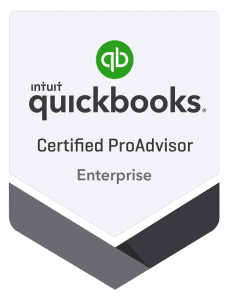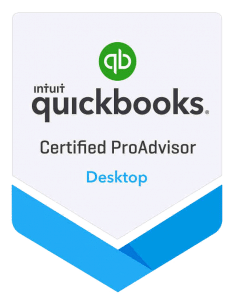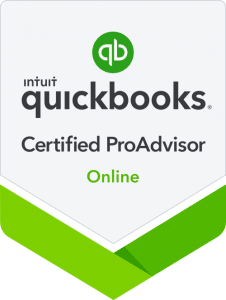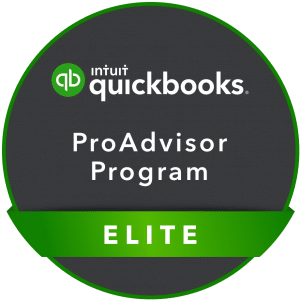Getting your bookkeeping in order before tax season might not be the most exciting task, but it’s one that can save you a lot of time and headaches. When your books are neat, it’s easier to spot potential issues, find the information you need, and hand accurate numbers over to your tax preparer. Whether you’re running your first business or you’ve done this for years, staying organized is one way to make tax preparation less stressful.
The truth is, taxes are harder when you’re playing catch-up. And tossing receipts into a drawer all year long doesn’t count as a system. With a little planning and regular upkeep, your bookkeeping won’t just help during tax season. It’ll give you real insight into how your business is doing all year. Let’s take a look at a few steps that can help you get your books in better shape before tax time rolls around.
Gathering And Organizing Financial Documents
It all starts with having the right documents in one place. If you want your tax season to run smoothly, you’ll need to give your preparer clear and complete financial records. That means pulling together everything that shows how money moved in and out of your business during the year.
Some of the most common records to organize include:
– Income statements or profit and loss reports
– Receipts and invoices for business purchases
– Payroll records if you have employees
– Bank statements and credit card statements
– Loan documents if your business made or received payments
– Reports from accounting software, like balance sheets
Once you know what you need, create folders—either digital or physical—to hold this information. Sorting by category or month usually works well. If you’re using a digital system, make sure your files are clearly labeled and backed up regularly.
Another tip is to set a consistent schedule for updating your records. Waiting until the end of the year is risky. Info can be lost, forgotten, or misfiled. A weekly or monthly routine can help you stay on track and cut down on the scrambling when tax time hits. Think of it like cleaning up your kitchen after cooking. If you do it right away, you avoid a big mess later.
The key here isn’t perfection. It’s consistency. Developing a habit of collecting and sorting financial documents throughout the year keeps you prepared and takes a lot of pressure off when it’s time to file taxes.
Utilizing Professional Bookkeeping Tools
Old-school spreadsheets may still have their place, but if you’re serious about better bookkeeping, it may be time to step up your game. Today’s bookkeeping tools save time, reduce errors, and offer insights that go beyond just tracking expenses.
Some features in professional bookkeeping software can include:
– Automatic syncing with your bank accounts
– Real-time income and expense tracking
– Easy report generation for tax prep
– Inventory and payroll tracking
– Cloud backups with multi-user access
The biggest perk of using a smart tool is how much it simplifies tax preparation. Instead of hunting down receipts or trying to remember what a charge was from two months ago, you’ll likely already have that information logged and categorized. Many tools can also generate reports your tax preparer will ask for, like balance sheets and cash flow summaries.
If you’ve been putting off switching to digital bookkeeping, think about how much easier your life could be next tax season. Think about the time you’d save not scrolling through old emails or boxes of documents. One business owner shared how switching to accounting software shaved days off their usual tax prep routine because everything was right there at their fingertips.
Good tools make a difference, but they work best when you use them regularly. Taking time to learn the system and stay on top of your entries can keep things running smoothly all year, not just when tax season hits.
Implementing Regular Reviews And Reconciliation
Keeping tabs on your books isn’t just a one-time effort. Checking your financial records throughout the year helps catch errors before they snowball. It’s like checking your rearview mirror while driving—you stay aware and avoid problems ahead.
Set aside time each month to review your accounts. This means comparing your bank statements against your records and making sure all entries match up. Spotting a mistake early can make a big difference come tax time. It also helps you stay in control, especially when things get busy or unexpected charges show up.
Here’s a simple process to stay on top of things:
1. Collect all account statements, including bank and credit card entries.
2. Match them to the entries you’ve made in your bookkeeping system.
3. Look for anything that stands out, such as duplicated expenses or missed income.
4. Make any corrections needed and keep notes in your system for future reference.
5. Watch for patterns. Are you being charged unnecessary fees? Are there frequent surprises?
Building a habit of monthly review and reconciliation helps you stay tax-ready all year long. It also gives you a clearer view of how your business is doing day to day.
Seeking Professional Help
Sometimes, even with the best tools and intentions, it makes sense to bring in a professional. Bookkeeping services offer more than just someone to enter numbers. They bring years of experience and know how to catch issues early, keeping your records accurate and compliant.
Professional bookkeeping services handle:
– Day-to-day data entry and categorization
– Monthly reconciliations and reporting
– Payroll support and tax document prep
– Year-end financial closings
– Advice on financial organization and efficiency
They can also follow tax laws that shift from year to year, something small business owners often don’t have time to keep up with. Working with someone experienced helps you avoid errors that could result in costly penalties or missed opportunities for deductions.
It’s also nice to have someone you trust keeping an eye on things. With bookkeeping professionals focused on your books, you can focus on running your business without the added stress that tax season brings.
Making The Most Of Your Organized Financials
Once you’ve done the work to keep things organized and caught up, the benefits start showing. Clean books mean clearer insights and smarter planning. Instead of guessing about your next move, you’ll have the info you need to make smart, informed decisions.
Tracking trends can help you plan inventory, marketing, and future hiring. You may even see where you’re spending more than needed or where income dips at certain times of the year. When you know these things, it’s easier to adjust and get better results.
Organized records also mean fewer hiccups with tax filings. You’ll be less likely to miss deductions, more likely to stay compliant, and much more prepared for government reviews or audits. Audits are never fun, but having solid books means fewer surprises and faster resolutions.
It’s all about working smarter. When your financial data is organized and up to date, your planning, compliance, and peace of mind get a boost too.
Ready For Stress-Free Tax Season
Look at you, ready to head into tax season with confidence. When your bookkeeping is up to date, organized, and regularly reviewed, filing taxes becomes just another task—not a last-minute scramble.
Your efforts to gather records, use tools that work, reconcile accounts, and call in pros where needed will save headaches down the road. And you won’t just feel it during tax season. You’ll see it every time you plan your goals, meet with your advisor, or review last quarter’s performance.
The earlier you start and the more consistent you are, the smoother it all runs. Better books lead to better decisions, and better decisions build stronger businesses. Having help where you need it makes things even more manageable. Tax season doesn’t have to be stressful. And with some smart habits, it won’t be.
With your bookkeeping now streamlined and efficient, you’re well on your way to a stress-free tax season. Don’t let tedious processes steal your time. Discover how our expert approach to business bookkeeping services can transform your financial management and bring clarity to your business operations. Let Cloud Bookkeeping take the guesswork out of your bookkeeping, allowing you to focus on what truly matters: growing your business with confidence.






